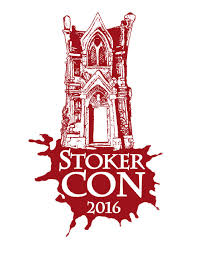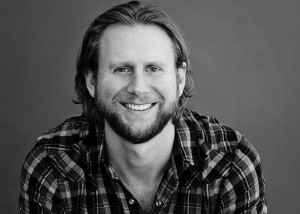Soon after the Bram Stoker Award final ballot was announced, the governing association asked for me to complete an interview so that people could get to know a nominee. Time constraints may preclude these interviews from being posted, but since mine was already completed, they encouraged me to go ahead and share it on my own.
So, here it is: my thoughts on having We Are Monsters nominated for a Bram Stoker Award for Superior Achievement in a First Novel. Please enjoy.
Get to Know a Nominee, Brian Kirk
HWA: What do you think good horror/dark literature should achieve? How do you feel We Are Monsters fits into (or helps give shape to) that ideal?
BK: Regardless of genre, my favorite stories are those that expand my idea of what’s possible and help me better relate to my predicament on this enigmatic planet.
When it comes to horror, I gravitate towards stories that make me feel vulnerable in some vital way. As humans, we construct these elaborate fantasies designed to make us feel safe. Governments, religions, borders, pension plans. We don’t like to face the fact that we’re all hurtling towards some unfathomable death that could come at any moment. But I find beauty in that stark confrontation. It’s what awakens me to the present moment and the magic of our existence.
You can’t have light without dark. There is no beauty without heartbreak. My goal in writing is to explore the inextricable duality between light and dark, to shine a compassionate eye on the evils that breed heroism, and to expose the howling void that surrounds us all.
HWA: I’m curious about your writing and/or editing process. Is there a certain setting or set of circumstances that help to move things along? If you find yourself getting stuck, where and why?
BK: My best writing comes from a type of waking dream state. It’s basically when I fall into an immersive daydream that silences my rational mind and taps into my subconscious (at least I think that’s what is happening, I really have no idea). This mindless dream state is where the story unfolds, and my job is simply to bear witness and try and get it down on the page as clearly as I possibly can.
I, therefore, approach writing as though I’m preparing myself for bed. I prefer to do it in the same place, or type of place (a quiet room with a hard surface and minimal potential for distraction). I prefer to do it when all my paid freelance work is done, so that it’s not nagging the back of my mind. And then, like lying down to sleep, when I sit down to work I trust that my mind will shut off and the dreams will begin. This doesn’t always happen, of course. Just as we all have restless nights. But it’s my general approach.
When I’m stuck, it’s typically because I’ve involved my rational mind in some annoying way. It’s when I’m consciously trying to “write well” rather than just let the words flow naturally. This quote from Thornton Wilder resonates with me, “If you write to impress it will always be bad, but if you write to express it will be good.”
Editing involves more of the rational/critical mind than composing, but I still consider it a creative process. I spend as much time rewriting as I do writing the initial draft. Every pass seems to help flesh out character and setting, while cutting extraneous fluff. There is a point of diminishing returns, however. It’s like tightening a screw. At first there’s such little resistance the screw turns easily. Then, as it gets closer to the end point, each turn produces a satisfying tug, like it’s all coming together. But go too far and you strip the grooves.
HWA: As you probably know, many of our readers are writers and/or editors. What is the most valuable piece of advice you can share?
BK: First, don’t listen to me, as I’m as clueless as anyone else. But, if forced, I’d say the following:
Never settle for something that feels safe. Always strive to surprise yourself. Try and make yourself laugh, gross yourself out, make yourself mad. Write stuff you’d never want your parents to read, then send it out. Write what you fear is way too strange or personal to be published and then make it as good as it can be. Know that everyone secretly believes their work sucks but they keep doing it anyway. Rebel against your inner critic.
HWA: If you’re attending WHC this year, what are you most looking forward to at this year’s event? If not attending, what do you think is the significance of recognitions like the Bram Stoker Awards?
BK: What I’m looking forward to the most is spending time among fellow horror enthusiasts. When I started writing horror fiction, I did not know a single other person who shared the same compulsion. At times, I felt alienated. At times I wondered what was wrong with me (as did many of my family and friends!). There is a particular feeling of belonging that only comes when surrounded by fellow horror writers. It’s a feeling of coming home. That’s what I can’t wait for.
As far as the awards go? Art is so subjective. At times I feel like it’s silly to objectify something as subjective as art with an award. And the process is impossible to perfect, so “worthy” pieces undoubtedly go overlooked, often making people feel cynical or dejected.
The positive effect I believe awards can have, however, is to bring more attention and potential readership to a particular genre, or books in general. That’s why it’s so important for all of us to tout the work of other authors that we’ve really enjoyed, so that when new readers are drawn in by an award, they become exposed to a host of other fantastic authors whose work they may enjoy as well.
HWA: What scares you most? Why? How (if at all) does that figure into your work or the projects you’re attracted to?
BK: The thing that scares me the most is the thing I work hardest to accomplish, which is the collapse of my own personal identity. This includes both how I view myself, and how I view my place in the world.
I am horrified to think that one day my core identity will be stripped away and/or that certain perceived talents which help construct my sense of purpose will be diminished.
I’m frightened to think that the people closest to me may change in such dramatic ways as to sever the relationships I hold most dear.
I am terrified to think that I am nothing more than a mistake of random evolution and that nothing I think or do has any importance or permanence whatsoever.
So I work very hard to lose my attachment to all of these thought structures and free myself from the fear they bring. These are all themes I tend to explore through my writing.
HWA: What are you reading for pleasure lately? Can you point us to new authors or works we ought to know about?
BK: That changes all the time. I have fairly eclectic tastes and enjoy all types of fiction. The best way to see what I like to read would be to friend me on Goodreads and peruse my bookshelf. I’m always looking for good book recommendations as well. Specifically, however, here are my favorite reads from last year (despite many titles being published previously) listed alphabetically.
- A Choir of Ill Children by Tom Piccirilli
- A Head Full of Ghosts by Paul Tremblay (Read my essay on it HERE)
- Broken Monsters by Lauren Beukes
- Close Reach by Jonathan Moore
- Dark Places by Gillian Flynn
- Finders Keepers by Stephen King
- Fourth of July Creek by Smith Henderson
- Least of My Scars by Stephen Graham Jones
- Slade House by David Mitchell
- The Girl Next Door by Jack Ketchum
Thanks for the interview, and I look forward to seeing everyone in Vegas!
If interested in purchasing a copy of my Stoker Award nominated work, you can do so through any of the following outlets (and I’ll thank you kindly):





Leave a Reply